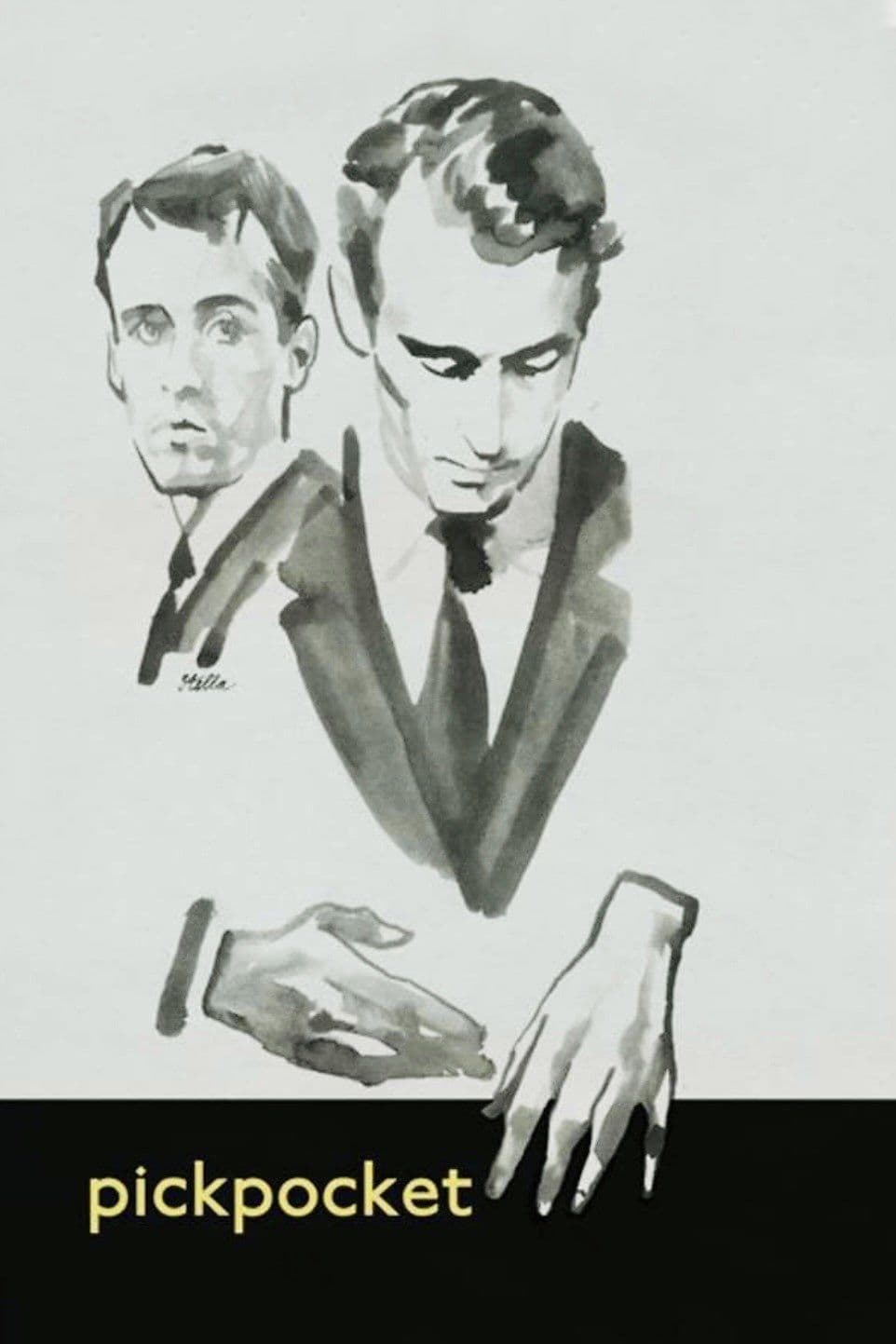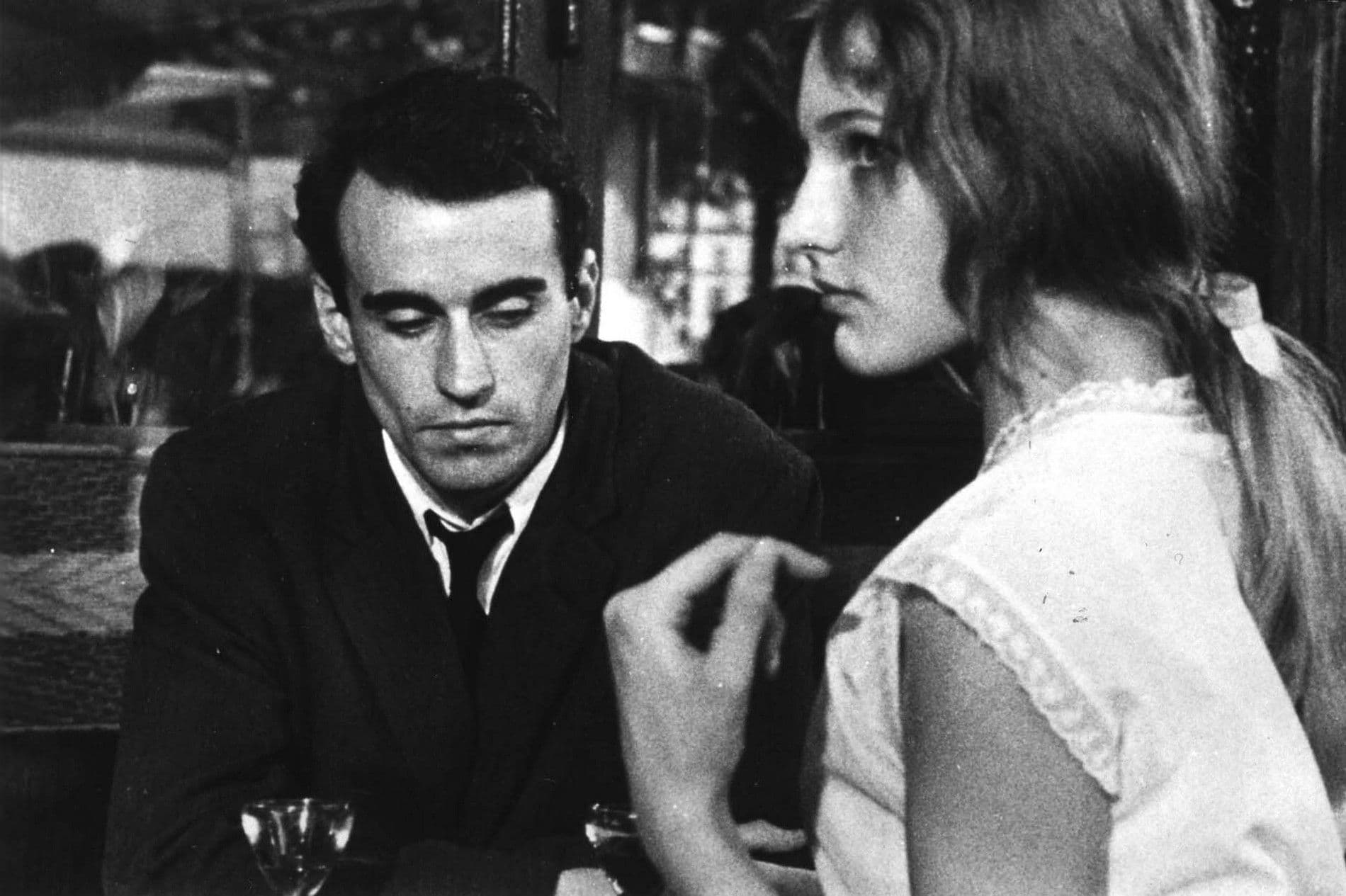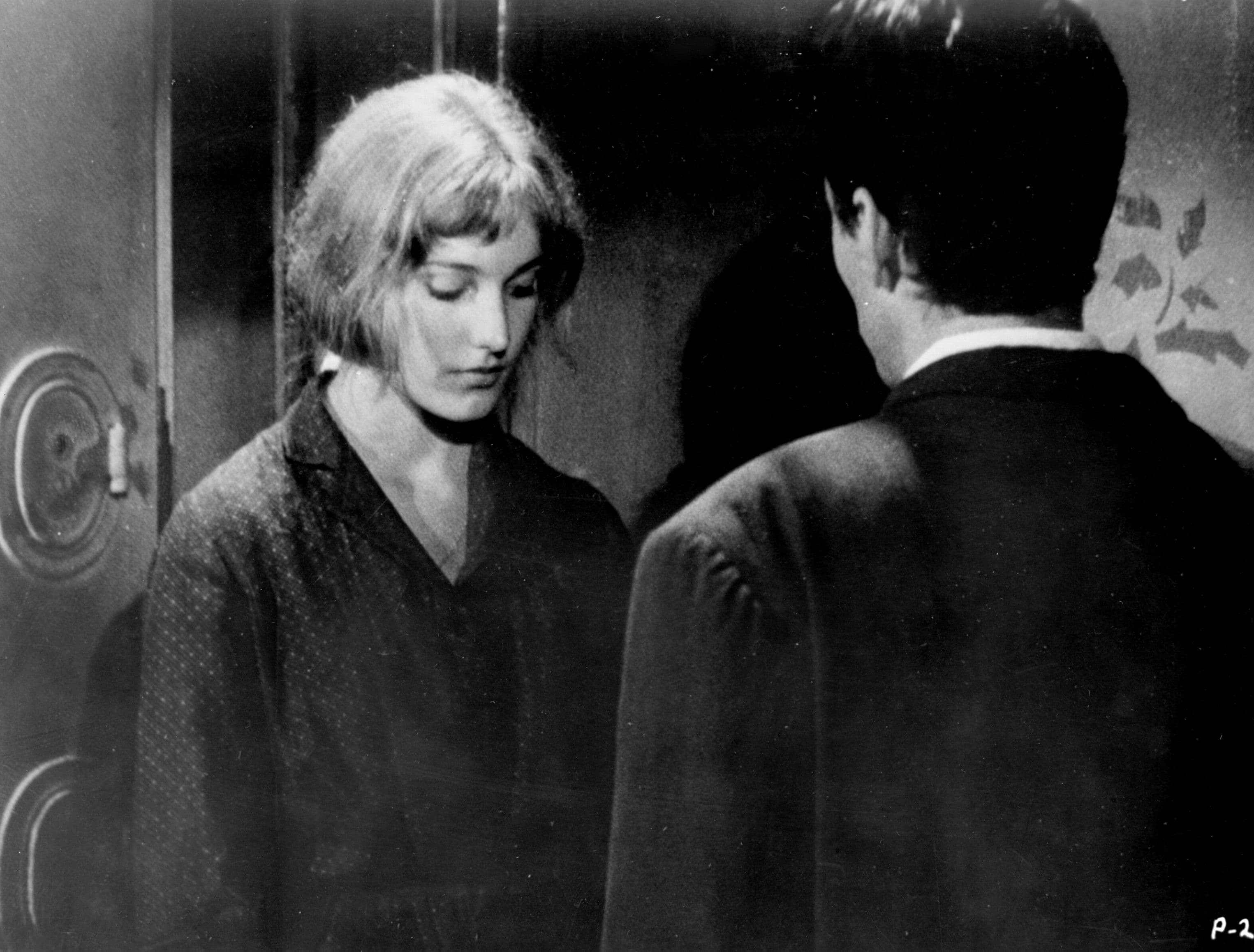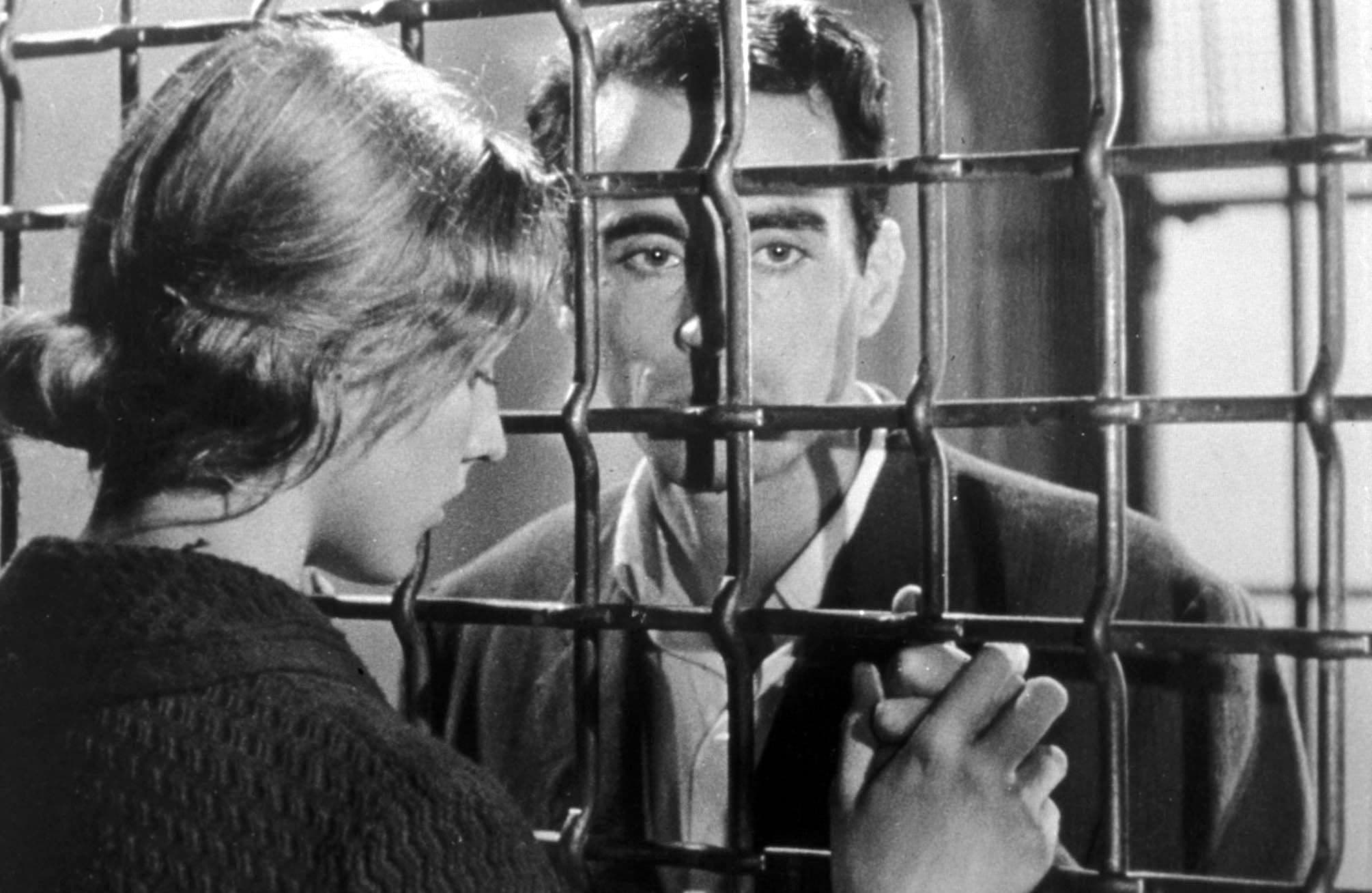
Pickpocket
1959
Rate this movie
Average: 0.00 / 5
(0 votes)
Director
Robert Bresson is first and foremost an artist who seeks to understand man, and to do so, he investigates his psychological contours, vices, obsessions, and dialectical spirit, using the cinematic expressive medium as a powerful microscope. A microscope that does not merely observe, but strips away, purifies, eliminates every conventional dramatic impurity to reach the naked essence of being. This is the hallmark of his "cinématographe," an art of vision that stands in opposition to theater, stripping "actors" of their professionalism to turn them into "models," pure and defenseless presences before the lens. It is an almost spiritual approach, steeped in a Jansenist mysticism that sees grace suddenly break into an otherwise condemned existence.
A tool that, in each of his works, dissects a specific type of humanity, brilliantly unveiling its microcosm. In Pickpocket, Bresson plunges us into the inner abyss of Michel, a young Parisian bourgeois who, out of boredom—or rather, a deep existential unease and a perverse taste for risk—becomes one of the city's most skilled pickpockets. His descent into crime is not dictated by necessity or intrinsic wickedness, but rather by a kind of philosophical experiment, a challenge thrown to society and, ultimately, to himself. A Dostoevskian yearning for transcendence through transgression, closely recalling Raskolnikov's tormented moral speculation in Crime and Punishment, a work that Bresson himself acknowledged as a fundamental source of inspiration. Michel, like his illustrious literary predecessor, seeks a logic for his transgression, a self-justification that elevates him above common morality, finding in theft not a means of subsistence, but a perverse form of affirming his individual freedom in a world perceived as empty and meaningless.
The character undergoes a moral and psychological transformation faithfully documented with a technique that, rather than being "quasi-expressionist" in the traditional sense of external representation of emotion, is an expression of the psyche achieved through absolute formal rigor. Bresson does not give in to external dramas; on the contrary, his camera becomes almost phenomenological, focusing on details: hands reaching out, eyes darting, feet moving. It is through this parceling of the body, this fragmentation of action, and Michel's voice-over, both confessional and detached, that his inner labyrinth unfolds. Every minimal gesture, every pause, every ambient sound (the rustle of clothes, the snap of a wallet) is elevated to a signifier, helping to reveal the mental prison in which the protagonist has self-imprisoned himself. It is not the expressionism of shadows and theatrical chiaroscuro, but that of an interiority painfully laid bare through an aesthetic of subtraction.
The love for a single mother, Jeanne, will bring that element of rupture, that crack in the wall of indifference and intellectual presumption, which will cause every certainty to crumble. It is not a passionate love in the conventional sense, but rather a form of grace that manifests in its simplest and most disinterested form. Jeanne embodies patience, loyalty, and unconditional acceptance, elements that radically contrast with Michel's isolation and cold logic. Her presence, initially barely tolerated, progressively becomes his anchor, the point of contact with an authentic and compassionate humanity that Michel had strenuously rejected. It is an epiphany of Christian charity, an offering of redemption that materializes in prison, where the absence of physical freedom paradoxically opens the door to true inner freedom and the acceptance of the other. The famous final line, "Ah! What a long road to get to you!", spoken after years of torment and incarceration, seals a path of purification that finds its catharsis in an embrace.
A great film that documents man and his milieu, the character and his stage. Train stations, horse races, the crowded streets of Paris become not only the background, but almost silent co-stars, indifferent and complicit in Michel's activities. They are places of anonymity, perfect for the exercise of his clandestine "art," and at the same time settings that underscore his profound solitude amidst the crowd. The environment is rendered with an almost documentary essentiality, devoid of emphasis, reflecting Bresson's vision of a world where drama unfolds internally, while the exterior remains impassive.
Famous and unforgettable are the sequences in which Bresson illustrates the technique required to pickpocket with impunity. These scenes, almost a visual manual of "pickpocketing," are filmed with choreographic precision that makes them hypnotic. Bresson, who consulted a real professional pickpocket to ensure the authenticity of the gestures, isolates the hands, the pockets, the complicit glances, creating a kind of silent ballet, an almost sacred ritual of theft. The camera dwells on these details with meticulous attention, transforming the crime into an almost artistic skill, a craft that requires years of dedication and concentration. These sequences are not merely demonstrative; they reveal Michel's obsessive quest for control, his attempt to dominate the world through dexterity and intellect, a vain pursuit that ultimately leads him to his downfall and, paradoxically, to his salvation. Bresson's formal mastery in these scenes is such that the viewer finds himself almost complicit, enchanted by the precision of the gesture, momentarily forgetting its moral implication.
Pickpocket is a seminal work, a milestone in philosophical cinema, which has influenced generations of filmmakers, from Paul Schrader (whose screenplay for Taxi Driver is imbued with Bressonian resonances) to Ingmar Bergman, and contemporary minimalists. Its strength lies in the balance between extreme stylistic rigor and spiritual depth, a dialectic that makes every frame an affirmation of faith in the invisible. It is a film that challenges our perception of good and evil, freedom and imprisonment, and invites us to seek grace in the most unexpected places. Masterful.
Country
Gallery





Featured Videos
Official Trailer
Comments
Loading comments...